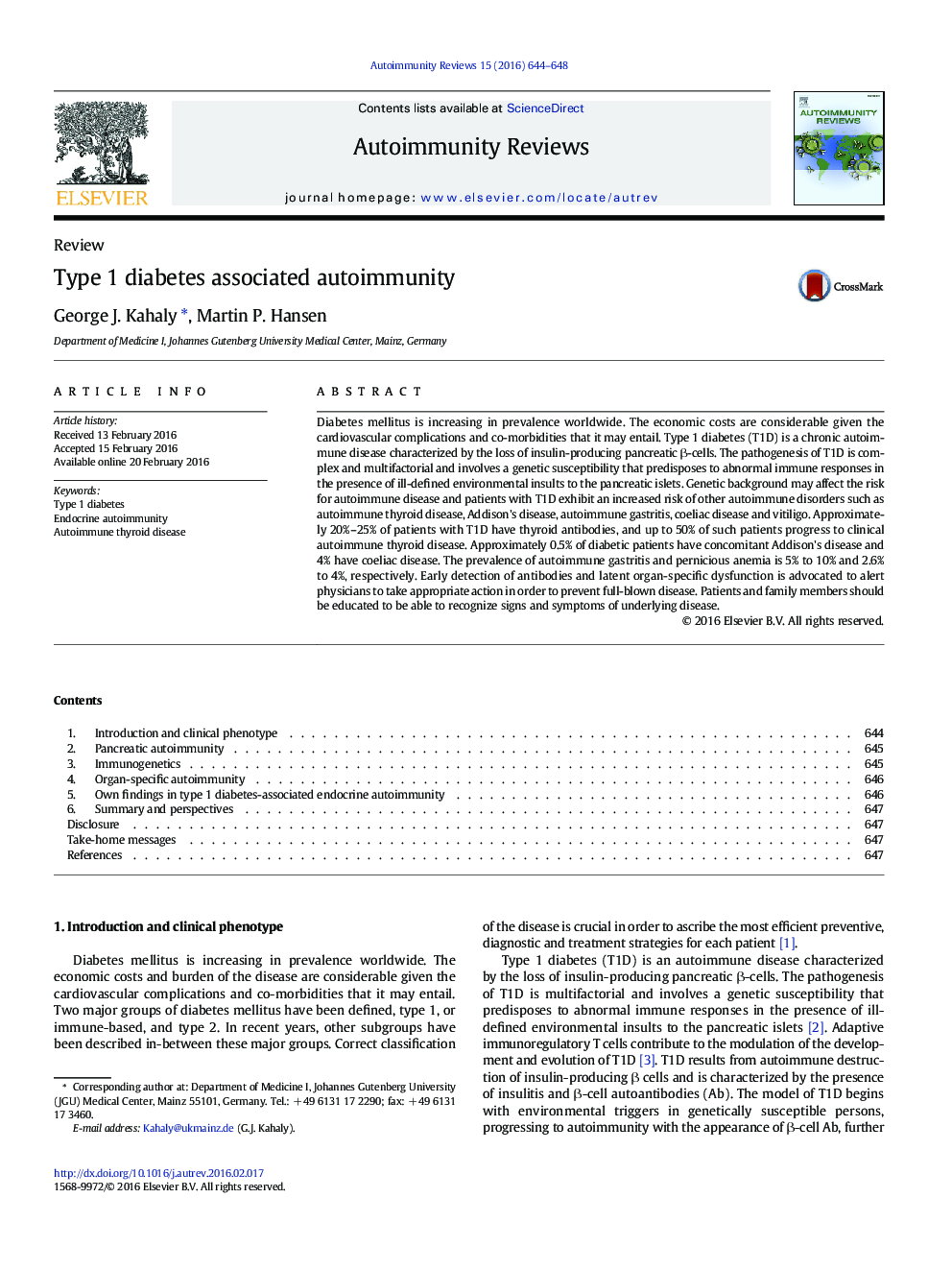| Article ID | Journal | Published Year | Pages | File Type |
|---|---|---|---|---|
| 3341338 | Autoimmunity Reviews | 2016 | 5 Pages |
Diabetes mellitus is increasing in prevalence worldwide. The economic costs are considerable given the cardiovascular complications and co-morbidities that it may entail. Type 1 diabetes (T1D) is a chronic autoimmune disease characterized by the loss of insulin-producing pancreatic β-cells. The pathogenesis of T1D is complex and multifactorial and involves a genetic susceptibility that predisposes to abnormal immune responses in the presence of ill-defined environmental insults to the pancreatic islets. Genetic background may affect the risk for autoimmune disease and patients with T1D exhibit an increased risk of other autoimmune disorders such as autoimmune thyroid disease, Addison's disease, autoimmune gastritis, coeliac disease and vitiligo. Approximately 20%–25% of patients with T1D have thyroid antibodies, and up to 50% of such patients progress to clinical autoimmune thyroid disease. Approximately 0.5% of diabetic patients have concomitant Addison's disease and 4% have coeliac disease. The prevalence of autoimmune gastritis and pernicious anemia is 5% to 10% and 2.6% to 4%, respectively. Early detection of antibodies and latent organ-specific dysfunction is advocated to alert physicians to take appropriate action in order to prevent full-blown disease. Patients and family members should be educated to be able to recognize signs and symptoms of underlying disease.
